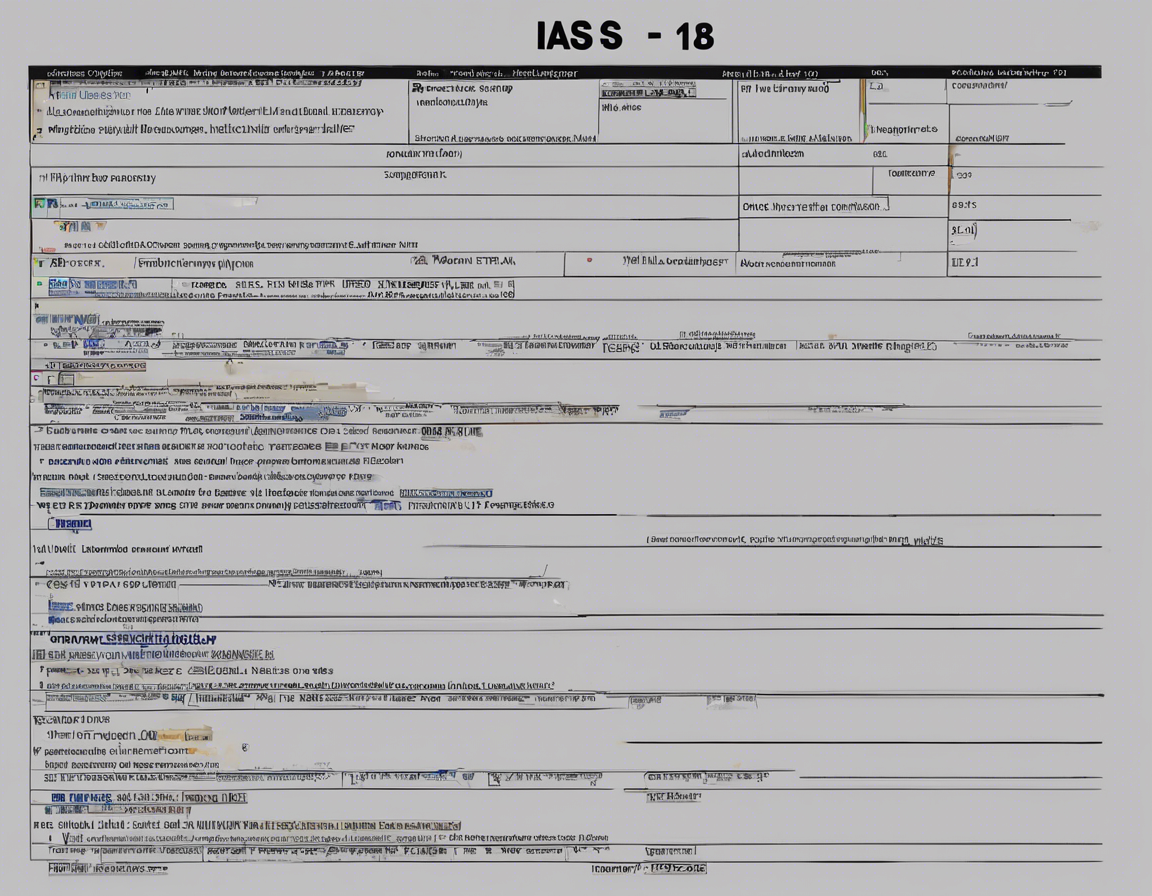
Understanding the Full form of IAS for Aspiring Civil Servants
As an aspiring civil servant in India, one of the prestigious career paths to consider is becoming an Indian Administrative Service (IAS) officer. The IAS is one of the three All India Services, alongside the Indian Police Service (IPS) and the Indian Forest Service (IFoS), and it is considered the premier administrative civil service of the Government of India. Holding a position in the IAS allows individuals to shape and implement government policies at both the central and state levels, contributing significantly to the nation’s governance and development.
What is the Full Form of IAS?
The full form of IAS stands for the Indian Administrative Service. Established in 1946, it is a crucial part of the Indian Civil Services and plays a vital role in the functioning of the Indian government machinery. IAS officers are responsible for the administration of both the Union government and state governments.
Eligibility Criteria for IAS Exam
To become an IAS officer, candidates must meet certain eligibility criteria, including:
Educational Qualifications
- Candidates must have a bachelor’s degree from a recognized university.
- Final year students can also apply for the exam.
Age Limit
- The candidate must be between 21 and 32 years of age.
- Relaxation in age limits is provided for certain categories, such as SC/ST/OBC candidates.
Nationality
- The candidate must be a citizen of India.
- For certain cases, individuals from Nepal, Bhutan, and Tibetan refugees settled in India may also be eligible.
Number of Attempts
- General category candidates can attempt the exam up to six times until they reach the age limit.
- There are relaxations in the number of attempts for candidates belonging to reserved categories.
IAS Exam Pattern
The Civil Services Examination (CSE) is conducted by the Union Public Service Commission (UPSC) to recruit candidates for various civil services, including the IAS. The CSE consists of three stages:
-
Preliminary Examination: This is an objective type exam consisting of two papers – General Studies Paper-I and General Studies Paper-II (CSAT). Only General Studies Paper-I marks are counted for qualifying for the Main exam.
-
Main Examination: It consists of nine papers, including Essay paper, General Studies papers, and optional subject papers.
-
Personality Test (Interview): Candidates who qualify the Main Examination are called for an interview to assess their personality, suitability for a career in public service, mental alertness, critical powers of assimilation, clear and logical exposition, balance of judgment, variety, and depth of interest, the ability for social cohesion, and leadership qualities.
Roles and Responsibilities of an IAS Officer
IAS officers are known for their versatile roles and responsibilities in the civil services. Some of the key duties include:
- Policy formulation and implementation.
- Administration of government schemes and programs.
- Managing day-to-day affairs of the government.
- Representing the government at national and international levels.
- Handling senior positions at state or central government levels.
How to Prepare for the IAS Exam?
Preparing for the IAS exam requires a strategic approach and dedication. Here are some tips for aspirants:
-
Know the Syllabus: Understand the exam pattern and syllabus thoroughly to plan your preparation effectively.
-
Consistent Study Plan: Formulate a realistic study plan and follow it diligently. Allocate time for each subject and revision.
-
Read Newspapers: Stay updated with current affairs by reading newspapers like The Hindu and The Indian Express.
-
NCERT Books: Refer to NCERT books for the basics of subjects like History, Geography, Political Science, etc.
-
Practice Mock Tests: Regularly solve mock tests and previous year papers to improve time management and accuracy.
-
Optional Subject: Choose optional subjects wisely based on your interest and preparation capacity.
-
Revision: Regular revision is crucial to retain information and perform well in the exam.
-
Stay Motivated: Stay positive and motivated throughout your preparation journey.
Frequently Asked Questions (FAQs)
1. What is the salary of an IAS officer?
- The starting salary of an entry-level IAS officer is around INR 56,100 per month, excluding allowances.
2. Can IAS officers be posted abroad?
- Yes, IAS officers can be deputed for foreign assignments in international organizations like the United Nations, World Bank, etc.
3. Is coaching necessary for IAS preparation?
- Coaching is not mandatory, but it can provide guidance and structured preparation. Many aspirants succeed without coaching as well.
4. Can IAS officers have political affiliations?
- IAS officers are expected to maintain political neutrality and serve the government of the day without any bias.
5. How long is the training period for IAS officers?
- The training period for IAS officers at the Lal Bahadur Shastri National Academy of Administration (LBSNAA) is approximately 2 years.
6. Is knowledge of the English language mandatory for the IAS exam?
- No, candidates can choose English or any Indian language mentioned in the Eighth Schedule of the Constitution for the exam.
7. How can I improve my answer writing skills for the IAS Main exam?
- Practice answer writing on a daily basis, focus on clarity, structure, and presentation. Seek feedback from mentors or experienced candidates.
8. Can foreign nationals apply for the IAS exam?
- No, only Indian citizens are eligible to appear for the Civil Services Examination.
9. What is the success rate of the IAS exam?
- The success rate of the IAS exam is quite low, with only a fraction of candidates clearing the exam due to its tough competition.
10. Is the IAS exam conducted every year?
- Yes, the Civil Services Examination, including the IAS exam, is conducted once every year by the UPSC.
Becoming an IAS officer is not just a career choice but a commitment to serving the nation with integrity, dedication, and leadership. The journey to becoming an IAS officer is challenging, but with the right approach, perseverance, and hard work, it is an achievable goal worth pursuing for individuals passionate about public service and nation-building.


